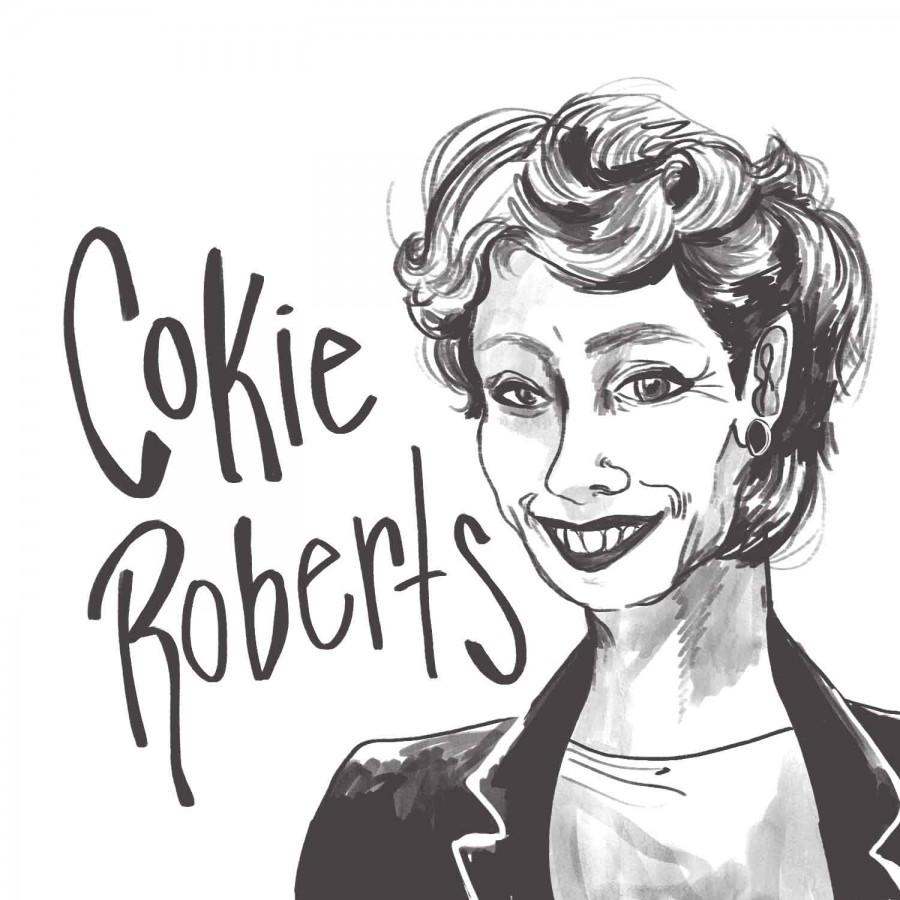A night of history with Cokie Roberts
May 23, 2015
Cokie Roberts — author of New York Times Bestseller “Capital Dames” — spoke at the Bing Crosby Theater in Spokane on May 14. Roberts is the daughter of two politicians and was raised saturated in political culture.
Roberts has written books on women’s roles throughout history — notably “Ladies of Liberty” and “Founding Mothers.” Her newest book, which came out April 15, is no exception. “Capital Dames” focuses on the role of women during the Civil War era: their power, potential and persuasion.
The evening began with a musical performance by Jodie Graves. She sang three songs including “John Brown’s Body” and set the tone of the evening. The performances prefaced the tone of Roberts’ lecture. Graves concluded with a recital of “Blue Tail Fly,” where Roberts came from behind the curtain and joined her to finish the chorus.
Roberts said at the start of her presentation, “I never intended to write a Civil War book.” After all, she said all her ancestors were on the losing side. However, after the wild success of “Ladies of Liberty,” her publishers requested another book covering the women of the Civil War.
World War II was a turning point for women’s rights; during the war, women took the men’s jobs and began standing up for themselves. Many, including Roberts, wondered whether the Civil War had a similar effect on the rights of women. The men went off to war and so the women assimilated themselves into the “male” job market.
Many women were integrated into multiple sects of government — positions ranging from governors to senators. Female journalists emerged to document the war. The first women’s newspaper, “The Lily,” bloomed in 1849 by Amelia Bloomer. As a result of the Civil War, multiple suffragist icons emerged, including Susan B. Anthony, Lucy Stone and the Grimke sisters. The Civil War inspired women who worked behind the scenes to decide for themselves that it was time to stand and speak up.
To capture a complete picture of the events and proceedings of the Civil War from a feminist perspective, Roberts had to read letters written in the early 1800s.
Roberts said, “Letters written by men were so stuffy and formal. … [They were] heavily edited.” However, “letters written by women had personality. They were fun to read.”
“Writing women’s history is detective work,” said Roberts.
It was Roberts’ job to reach into those cracks and identify what was really going on during the 1800s from the women’s point of view. These were patriotic women who were dedicated to their country and political engagements despite being considered the property of their husbands.
As to Roberts’ writing process, she said, “I write when I can.” This process proved rather painful as her publishers gave her a deadline of April 14 — that was the 150th anniversary of President Lincoln’s assassination. Roberts explained, “In order to finish the book on time, I had to wake up at three in the morning on the 12th and write until six in the morning the next day. Then I dived into a bottle of wine.”







